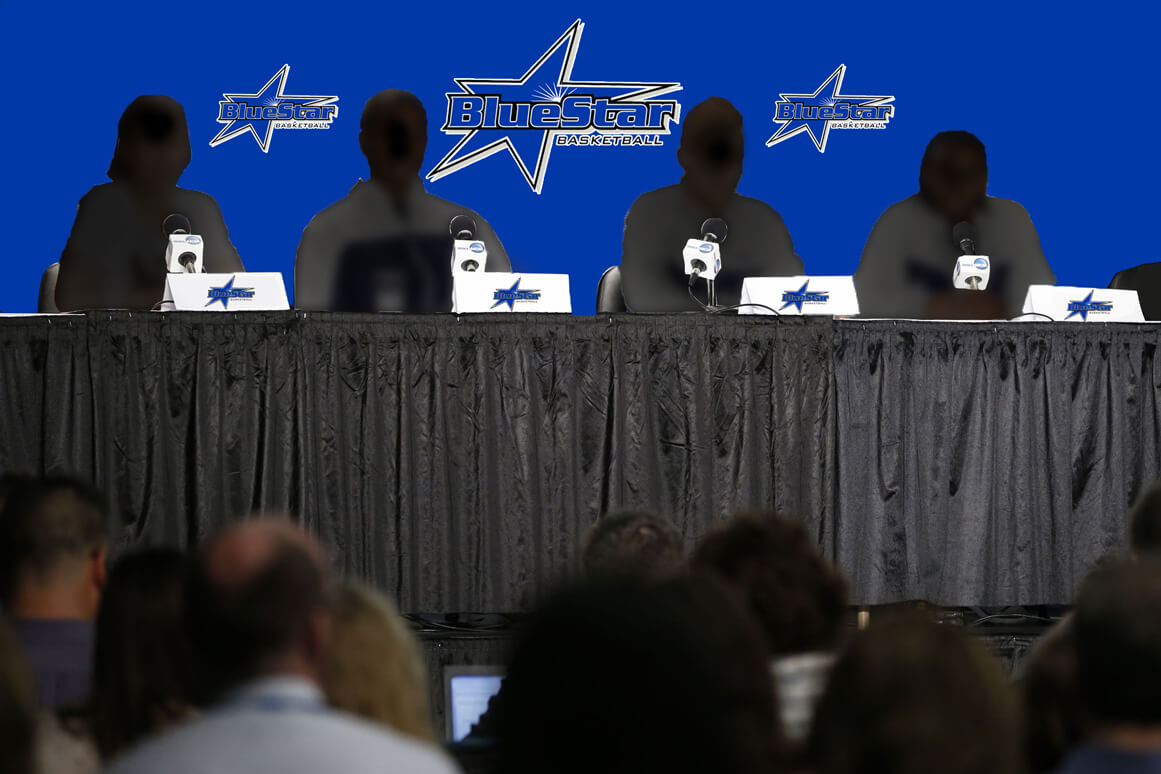One of the most heralded freshmen in the nation rocked her sport this week with the news that she’s transferring.
But while Diamond DeShields figures out her next move, with the apparent blessing of a release by Sylvia Hatchell, her stunned coach at North Carolina, another top freshman performer is being blocked by the athletic department at the university she attends from going elsewhere without losing her scholarship.
Even before the DeShields drama unfolded, Leticia Romero spoke out about Kansas State’s refusal to let her transfer following a coaching change that she decided wasn’t in her best interest.
Romero led the Wildcats averaging 14.2 points, 5.8 rebounds and 4.9 assists, was a second-team All-Big 12 pick and also was chosen to the Big 12 All-Freshman team.
She also is one of the top underage players in the world, a guard and member of Spain’s Under 19 national team that finished fourth in the most recent FIBA world championships for that age group.
Romero told the Topeka Capital-Journal that she wanted to leave because of K-State’s firing of coach Deb Patterson and the departure of assistant Shalee Lehning and because new coach Jeff Mittie’s playing style didn’t suit her.
There’s nothing unusual in this — players leave under these circumstances all the time.
And sometimes schools refuse to let them go, or place conditions on where they can go — such as transferring to another conference school.
But K-State’s initial denial confounded her, especially after an incoming recruit signed by Patterson was granted a release.
Romero charged the athletic department with “blackmail” for suggesting she stick around for another year.
If that sounds like a harsh word, then consider the present atmosphere in college athletics, and in particular “student-athletes” challenging the system that handcuffs them on so many fronts.
NCAA rules not only require “student-athletes” to sit out a year before they’re eligible at their new school, but they permit coaches and athletic departments to set conditions for their release. Or even to refuse to release them at all.
On Friday, an appeals committee at K-State upheld the athletic department’s denial of a release for Romero. What’s most puzzling is that the school’s policy of not approving transfers is applied selectively — three K-State men’s players also were granted releases last year.
School officials aren’t saying anything.
If Romero sticks to her guns and leaves, she’ll have to pay her way through school while she sits out next season.
Just wondering out loud here, but if Romero is an American-born star, does this sort of thing happen?
DeShields is already at work lining up her next suitor, and it’s looking like it may be a package deal with heralded rising senior prospect Te’a Cooper, who decommitted from North Carolina in December.
While DeShields’ penchant for orchestrating moves in her own interest is audacious, the power and leverage that highly paid adults have over teenagers and young adults who play for them is getting stronger than ever. Even in women’s basketball.
K-State has spent quite a bit of money to hire Mittie from TCU — another Big 12 school — to get the Wildcats back in the hunt. He’s being paid $375,000 in the first of a five-year deal, with $25,000 annual increases, as well as a $140,000 signing bonus.
Imagine if Romero — or any other player — wanted to go to another Big 12 school. In this case, Romero hasn’t said where she might like to play, but she’s being completely stonewalled.
I don’t want to sound like one of those perpetually outraged journalists fomenting about an NCAA system that doesn’t really affect me. It doesn’t. Austin Meek had an excellent perspective on this recently in the Eugene Register-Guard, noting how the adults are doing most of the talking.
Well, Leticia Romero has been doing some talking, and that’s a little bit encouraging, although it doesn’t look like it will change her situation.
What this does illustrate, however, is that the status quo in college athletics is getting harder and harder to justify.
Whatever you think about the Northwestern football players’ bid to unionize, athlete stipends, the O’Bannon lawsuit or any number of other legal or financial threats to the system, NCAA and leading college athletic officials are doing themselves no favors in how they’re defending what they’ve got.
They sound out of touch and contradict their own pieties about the value and goodness of competing as a collegiate “student-athlete.” Especially as they sign astronomical new television contracts and make other lucrative sponsorship deals that enrich them and those with whom they do business.
All this provides perfect cover for K-State’s hardball tactics with Leticia Romero, a 19-year-old “student-athlete” from another country, competing in a non-revenue sport.
If K-State is trying to trap Romero into staying to give Mittie a good start with an all-conference caliber player, it isn’t saying and I don’t think that’s a good idea.
But whatever its reasons, the school looks mean-spirited and certainly not about the “student-athletes” in any positive way.
K-State isn’t approving her request for a transfer because it doesn’t have to.
Letter-of-intent reform and loosening transfer rules is desperately needed and painfully obvious.
But look what it took for the NCAA to clarify how much “student-athletes” are officially entitled to eat.
Wendy Parker is a sportswriter and web editor who has covered women's basketball since the early 1990s. She is a correspondent for Basketball Times and formerly covered women's and college sports, soccer and the Olympics at The Atlanta Journal-Constitution. She is the author of "Beyond Title IX: The Cultural Laments of Women's Sports," available on Amazon, and the creator of Sports Biblio, a blog about sports books and history.

Latest Articles
-
Christopher Lawlor
/ 21 hours agoSPEARHEADED: Americans crush Brazil by 79 points at FIBA U16 AmeriCup quarterfinals; Marcus Spears Jr. puts up 16 points and 9 rebounds
JUAREZ, Mexico — The USA men passed its first test in the knockout stage...
-


Christopher Lawlor
/ 3 days agoSTARS SHINE: Bailey, Costello earn Co-MVPs at 23rd Pangos All-American Camp in Las Vegas; three Santa Margarita (CA) players recognized
LAS VEGAS – The Pangos All-American Camp did not disappoint. For three days the...
-


Christopher Lawlor
/ 5 days ago23rd Pangos All-American Camp tips off in Las Vegas with nation’s elite players congregating for national showcase event
LAS VEGAS – The summer circuit is nearly two months old but it really...
-


Christopher Lawlor
/ 1 week agoU16 USA Women’s Basketball National Team roster selected for 2025 FIBA AmeriCup in Mexico from June 16-22
COLORADO SPRINGS, Colo. — USA Basketball announced today the 2025 USA Women’s U16 National...



